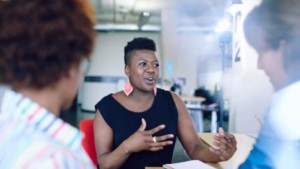Three Paradoxes Confronting the Global Educator

By Valerie Hannon
This post was originally published on the website for the Centre for Strategic Education based in Melbourne, Australia on March 16, 2016 and can be found in full here.
Many educators see the promise of personalizing education as a way to (re) establish the non-cognitive as profoundly important to the future of the species, and also to individuals’ personal and economic well being; and enable, celebrate and develop diversity in human skills and their application; and more profoundly nurture human creativity and collaborative endeavor.
In this task, they may be supported by advocates who continue to press for an alternative vision of education’s function, while the policymakers for the most part prefer the ‘safety’ of the old story; except it is not safe, for those whose lives will unfold in the next 50 years.
In addition to this less than propitious political environment, the task of seeking to personalize learning is being undertaken in the era of globalization. While it may be that learners’ best hope in a globalized world (irrespective of their class, gender or geography) is to become a creative, collaborative, entrepreneurial and engaged lifelong learner, the very features of globalization itself throw up some challenging paradoxes.
Paradox 1
We desire (and we need) global collaboration, connection and exchange. The case for building ‘global competence’ is difficult to refute; not least because it would appear to offer the best hope for a more peaceful planet.
However:
- In the pursuit of global competence, how do we preserve the distinctiveness of localism, the diversity and the preciousness of indigenous knowledge?
- If globalization has resulted in the ‘homogenizing’ of say, shopping (it will be the same whether you are in Paris or Beijing), how can the same fate be avoided in relation to culture and knowledge?
- How can we achieve the benefits of global awareness, becoming truly global citizens without succumbing to the forces of standardization which are already so strong?
Paradox 2
Personalizing learning rightly focuses on the distinctiveness of each individual.
It honors that uniqueness, and builds on its strengths. Hence the importance accorded to the passions and interests of individuals while not to the exclusion, of course, of an entitlement to access a shared designated curriculum.
However:
- Our interdependence as a species has never been more evident. Our collective existential predicament, our destruction of the planet through selfish carelessness, cannot be addressed unless learners acquire a strong sense of interdependence and collective responsibility, as never before.
- How can the grounding of a learning journey in personal passions and concerns be expanded to ensure this broader identity?
Paradox 3
Creating the conditions for personalized learning depends on many factors. One, of course, is easy access (for both learners and teachers) to great technology. But another is the extension of the learning enterprise well beyond the conventional educators. While teachers’ roles will become ever more sophisticated as they choreograph the opportunities for their students’ learning journeys, they must nonetheless have access to new webs of support, which expand and deepen those opportunities.
Learning ecosystems, which will comprise new players in the learning game, are what will ultimately be needed to create really powerful learning for all, lifelong. To create such ecosystems, we will need to exploit all the resources available from cultural institutions and civic society, through to new forms of funding, as states increasingly baulk at the rising cost of investing in education. Some Foundations are already in the business of intentionally creating such ecosystems, for example MacArthur Foundation in Chicago (see their newest initiative at LRNG.org). In addition, philanthropic capital and angel investors provide essential routes for the seeding of more radical innovation for personalizing learning.
However:
- The opening up of education services, especially to global capital, is proving highly problematic. The entry of many new players is driven by profit without, necessarily, sufficient regard to quality; and it shows every sign of exacerbating inequality.
In Conclusion
Paradoxes, or in this case perhaps contemporary trends in deep tension are, by their nature, not neatly resolvable. The purpose of this paper has been to lay some of these bare, in the hope of stimulating more public scrutiny and debate about our real options as opposed to those which applied in the 19th and 20th centuries, and which no longer do.
For more, see:
- Embracing Paradox to Create Powerful Learning
- Embracing Paradox Leads to Breakthroughs
- What is Learning For?
Valerie Hannon is co-founder of the Innovation Unit in the United Kingdom. Follow her on Twitter: @valeriehannon.
Stay in-the-know with all things EdTech and innovations in learning by signing up to receive the weekly Smart Update.






0 Comments
Leave a Comment
Your email address will not be published. All fields are required.